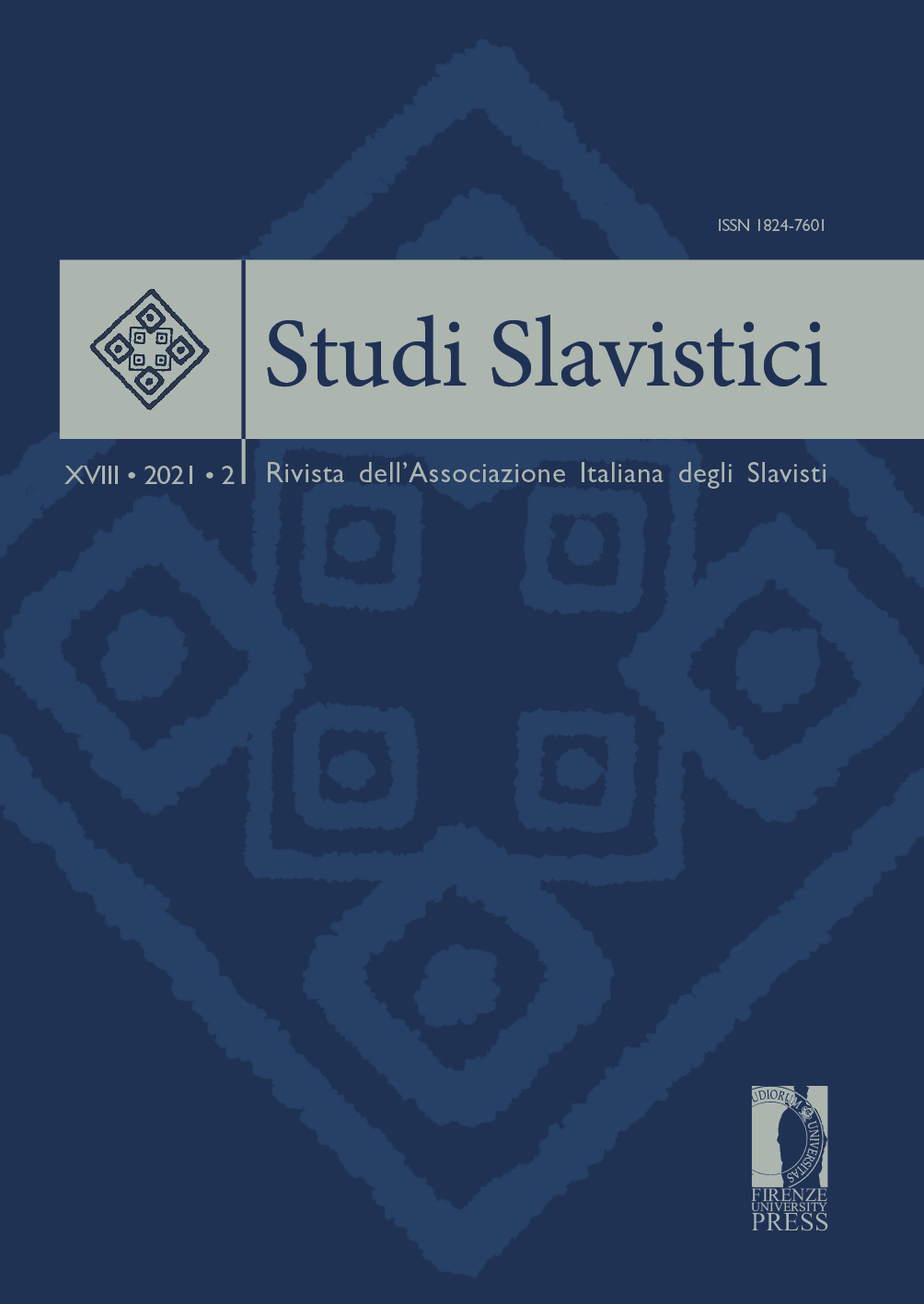Published 2022-02-02
Keywords
- Nikolaj Nikitin,
- Ornamental Prose,
- Serapion Brothers,
- Revolutionary Prose
Abstract
Despite being one of the lesser known Serapion Brothers, Nikolai Nikitin had a brilliant early career. He was acclaimed by M. Gorky and the critic A. Voronsky as a very promising writer, able to convey the spirit of the post-revolutionary period, also in light of his personal experience as a volunteer in the Red Army. The first phase of his literary production dates from 1922 to 1924. In the texts of this period the thematic focus is mainly on the experience of the revolution, while, stylistically, they are characterized by a highly evocative and musical language that reveals the influence of A. Bely’s Simfonii. The article focuses on the long story (povest’) Noch’, edited and redacted three times during 1923, more than any of Nikitin’s novels. Being the most redacted and revised piece of Nikitin’s long fiction, the povest’ offers the possibility to investigate the relationship between the author and Voronsky who, more than anyone else, had a great impact on the young writer. The povest’ focuses on the battle between two trains, one white (called “L.G. Kornilov”) and one red (the “N. 14-7, Béla Kun”). In the first edition, the result of the battle is not conveyed to the reader; the only outcome is destruction and pain, and this caused a very negative and passionate reaction from critics and readers. The comparison of the three redactions of the povest’ shows the direction of the revisions, which started from a merely stylistic point of view and then moved to a more ideological layer, clarifying the result of the battle (now undoubtedly assigned to the Red Army) and highlighting the stichijnyj but deeply legitimate character of the Revolution itself. Starting from 1924, Nikitin will no longer participate in the meetings of the Serapion Brothers, and his poetics and chosen topics will change as well, moving in the stylistic and ideological direction that will be formalized in 1934 under the name of Socialist Realism.



